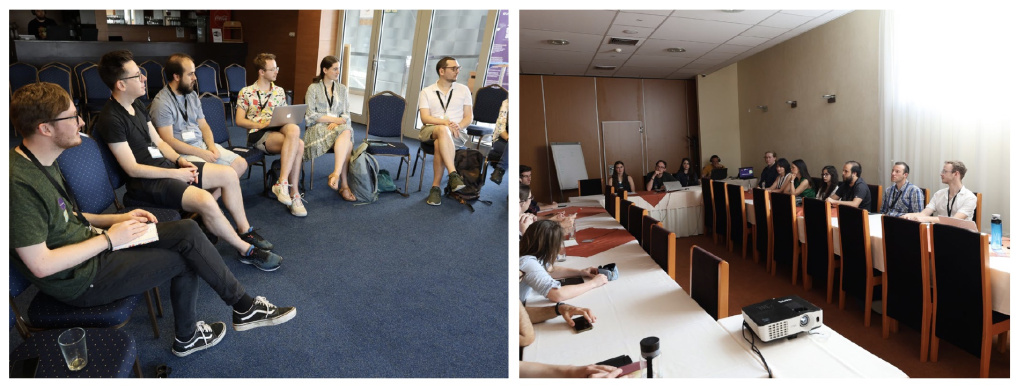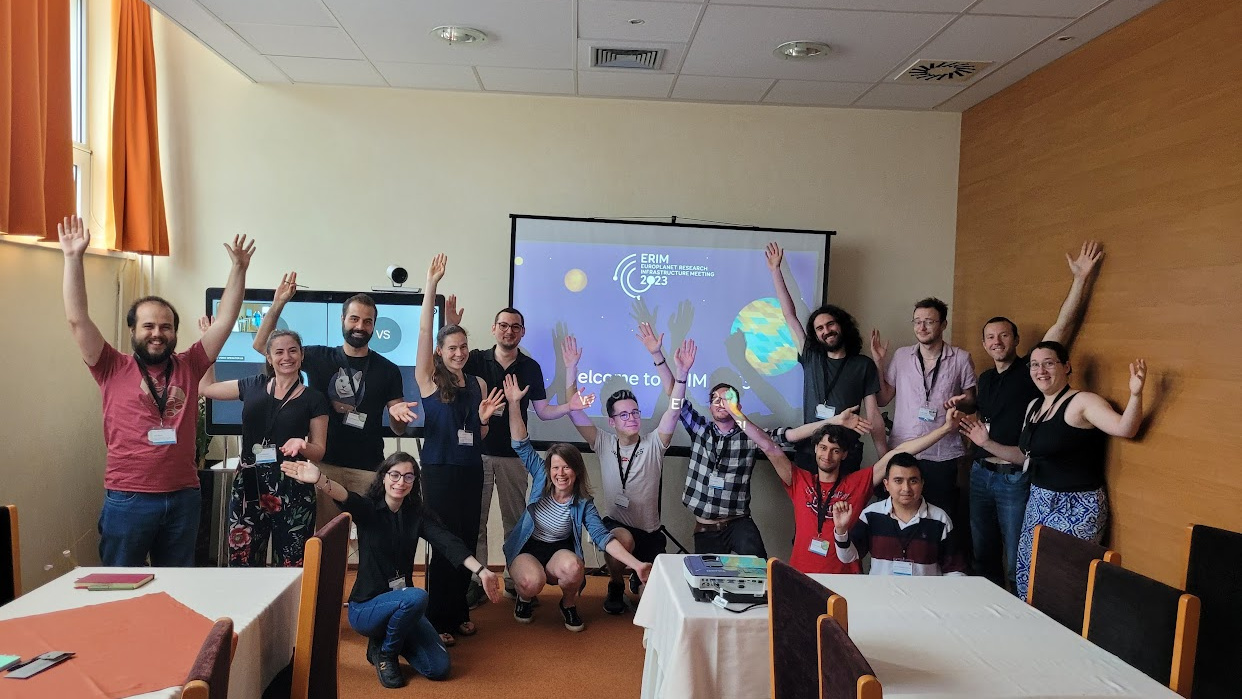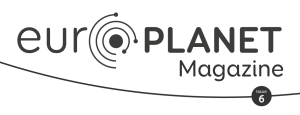EPEC Annual Week: A Melting Pot of Ideas
James McKevitt (University of Vienna, Austria and UCL, UK) reflects on the outcomes of the Europlanet Early Career event, EPEC Annual Week, held in Bratislava, Slovakia in June 2023.
Read article in the fully formatted PDF of the Europlanet Magazine.
Bratislava in Slovakia recently played host to the 5th Europlanet Early Career (EPEC) Annual Week, an event that has rapidly become a cornerstone for early career scientists in European planetary science. Co-hosted with the Europlanet Research Infrastructure Meeting (ERIM) 2023, the gathering marked a significant leap in fostering collaboration and sharing knowledge across the Europlanet Society and shaped the future of the EPEC community.
The Setting and Participation
The historic city of Bratislava, with its blend of modern dynamism and rich cultural heritage, provided a fitting backdrop for an event focused on the future of planetary science. The week saw a healthy mix of 45 participants from across Europe – 23 attending physically at the Hotel Sorea and 22 joining online, leveraging the latest in live-streaming technology to support a seamless hybrid meeting.
Programme Overview
The agenda of EPEC Annual Week was diverse and designed to enrich the careers of the attendees. It spanned a spectrum of activities – from professional development workshops to mental health awareness sessions – reflecting EPEC’s holistic approach to career development.

Career Development Sessions: In these sessions, experts from industry and universities talked about their jobs, giving a clear idea of the different types of work you can do in planetary science. They also discussed careers that started in university research and then moved to industry, showing early-career scientists some job paths they maybe weren’t aware of. Attendees had the chance to talk to these experts afterwards, which was great for making new contacts and getting advice.
Skill-Building Workshops: These workshops focused on teaching important skills like how to communicate well and write good proposals. Attendees saw examples of successful proposals, and an experienced proposal reviewer explained the essentials points writing a successful proposal. These sessions were interactive, and the communications session enabled the attendees to practice these skills themselves.
Mental Health and Wellbeing: A special session, led by a mental health expert, talked about how to deal with stress and keep a good balance between work and life. Attendees learned how to spot stress early and develop ways to make sure work doesn’t take over their life. This was a really important reminder that looking after your mental health is key in a demanding field like science.
Plenary Sessions and Group Activities: These sessions were part of the bigger ERIM programme and helped EPEC attendees learn about the latest research in planetary science. There were talks about the tools from Europlanet that make research easier, with some practical tips on how to use them. It was also a chance for people to discuss collaborative projects in planetary science.
Innovation in Community Building
A central theme of the week was community building, emphasised through various interactive sessions. The event underscored the importance of a supportive network, particularly in a field as dynamic and collaborative as planetary science. Breakout discussion groups played a pivotal role, serving as brainstorming pods for the future of EPEC’s working groups.

A key outcome of these discussions was the consensus on the need to restructure EPEC’s working groups. The proposed shift towards a more flexible, project-based approach, with clearly defined end points, aims to enhance engagement and effectiveness. This restructuring is seen as crucial for adapting to the evolving demands of the field, the diverse interests of those engaged, and the transient nature of early career members.
The co-hosting with ERIM 2023 was a strategic move that paid off, creating a platform for increased interaction between early career scientists and other sectors of the Europlanet Society, including distinguished scientists from across Europe.
This synergy was evident in the shared sessions, where participants from both events engaged in in-depth dialogues. As an example, EPEC members and Europlanet’s Regional Hubs, which provide a localised service to members across the continent, discussed how to establish a clear relationship that reflects what is wanted, and can be provided, on both sides.
Key Takeaways and Future Directions
The 5th EPEC Annual Week in Bratislava was more than just a congregation of young scientists; it was a melting pot of ideas and aspirations. The roadmap that has emerged from the week’s collaborative efforts outlines a future where educational resources are expanded, career pathways are diversified, and community engagement is deepened. It emphasises the importance of mental health, the necessity of continuous learning, and the power of a supportive network. These inputs can now be drawn on by the EPEC Committee under the leadership of the new Co-Chairs (see In Focus).
As the participants dispersed, along with memories of the picturesque city of Bratislava, they carried with them new connections, fresh perspectives, and a shared vision for the future of planetary science. The 5th EPEC Annual Week was a testament to the vibrant and dynamic nature of the EPEC community – a community that is not only shaping the future of planetary science but also fostering the growth of its next generation of leaders.
Playlist of EPEC Annual Week Sessions


